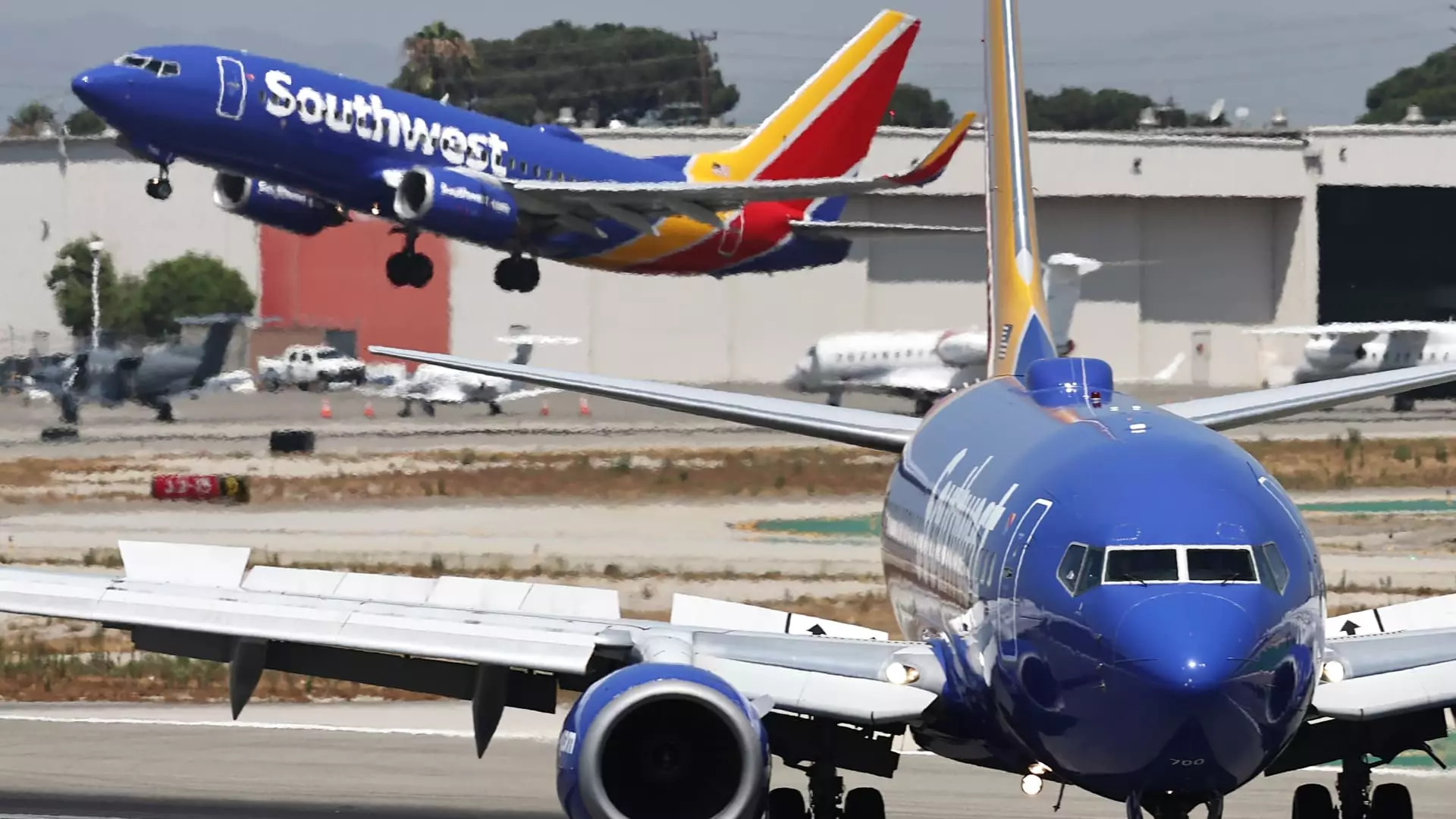In a significant update for stakeholders, Southwest Airlines has revised its revenue expectations for the third quarter of the fiscal year. On Thursday, the company announced a forecast indicating a potential unit revenue increase of up to 3% compared to the previous year—a substantial improvement from earlier projections which anticipated a decrease of as much as 2%. This optimistic outlook is partially attributed to the rebooking of passengers from other airlines impacted by a technical issue in July, demonstrating Southwest’s ability to capitalize on competitors’ misfortunes.
To further bolster shareholder confidence, Southwest’s board of directors has approved a robust $2.5 billion share buyback program. This decision underscores the airline’s commitment to enhancing shareholder value and is a tactical response to investor scrutiny, particularly from activist firm Elliott Investment Management. The share repurchase initiative is designed to not only strengthen market performance but also to signal to investors that the airline is on solid financial footing, capable of rewarding its shareholders even amid evolving business dynamics.
In a bid to enhance governance and operational strategy, Southwest has welcomed Bob Fornaro to its board of directors. With a rich history in the airline industry, including his leadership roles at Spirit Airlines and AirTran, Fornaro’s inclusion is anticipated to bring invaluable expertise, especially given his prior consultancy experience with Southwest post-merger with AirTran. This strategic board shift aims to mollify concerns regarding executive coherence and direction held by Elliott, reinforcing the airline’s commitment to improving operational leadership during a time of intensified scrutiny.
In light of investor expectations and competitive pressures, Southwest is undergoing significant alterations to its longstanding business practices established over fifty years ago. This includes the introduction of assigned seating and extra-legroom options. While these changes may initially seem counter to the budget-friendly ethos that Southwest has championed, the airline maintains that these adaptations are essential for capturing additional revenue streams and remaining competitive in an increasingly crowded market.
Notably, the airline has reaffirmed its policy of allowing two complimentary checked bags per customer, arguing that this policy not only enhances the customer experience but also fosters increased market share that outweighs potential losses from bag fees. This decision illustrates Southwest’s strategic focus on customer retention as a pillar of its operational ethos.
Despite these positive adjustments, the airline is also preparing for significant service cutbacks, particularly in key markets like Atlanta. With workforce reductions including the potential layoffs of over 300 flight attendants and pilots, it is clear that Southwest is proactively engaging in cost-cutting measures to maintain profitability in a shifting economic landscape. Such operational decisions reflect the balancing act the airline must perform as it endeavors to satisfy both shareholders and a demanding customer base.
As Southwest Airlines navigates a challenging environment marked by leadership changes and intensified investor attention, it must remain agile and responsive. The airline’s strategic adaptations, from revenue projections to board enhancements, could set the stage for a renewed footing in an evolving industry. However, the adjustments to its service model and operational structure will determine whether these efforts resonate positively with both investors and passengers in the long run.

